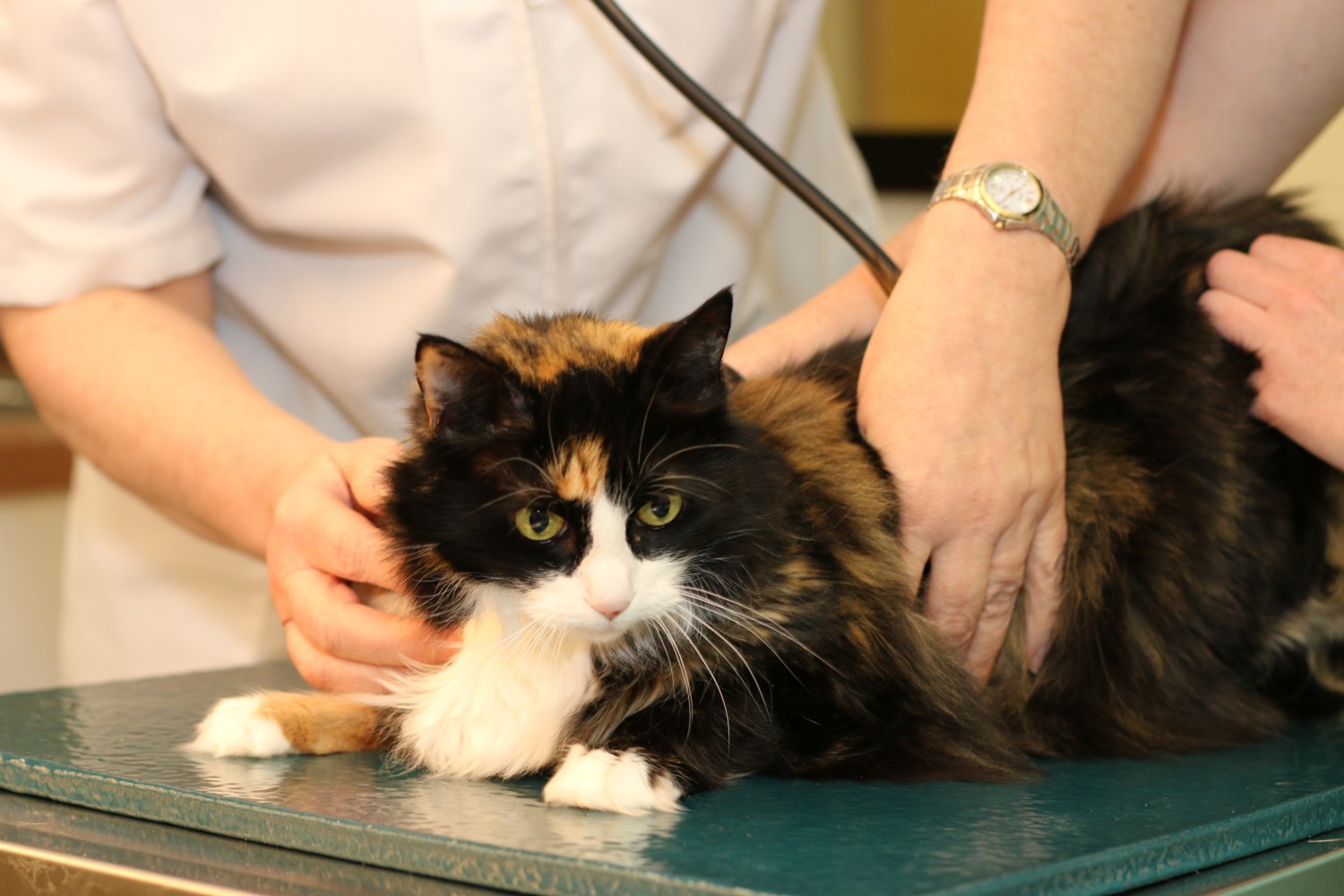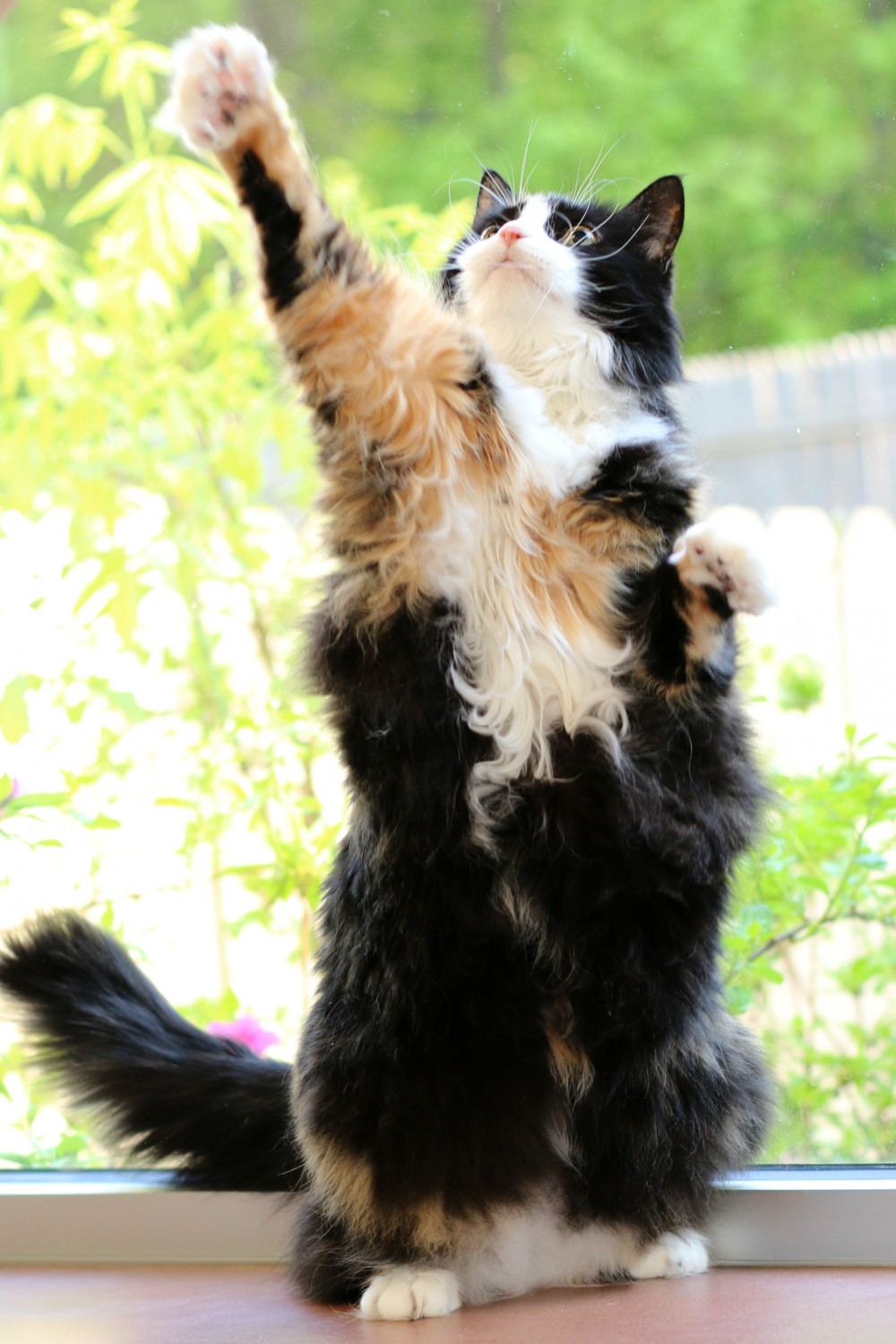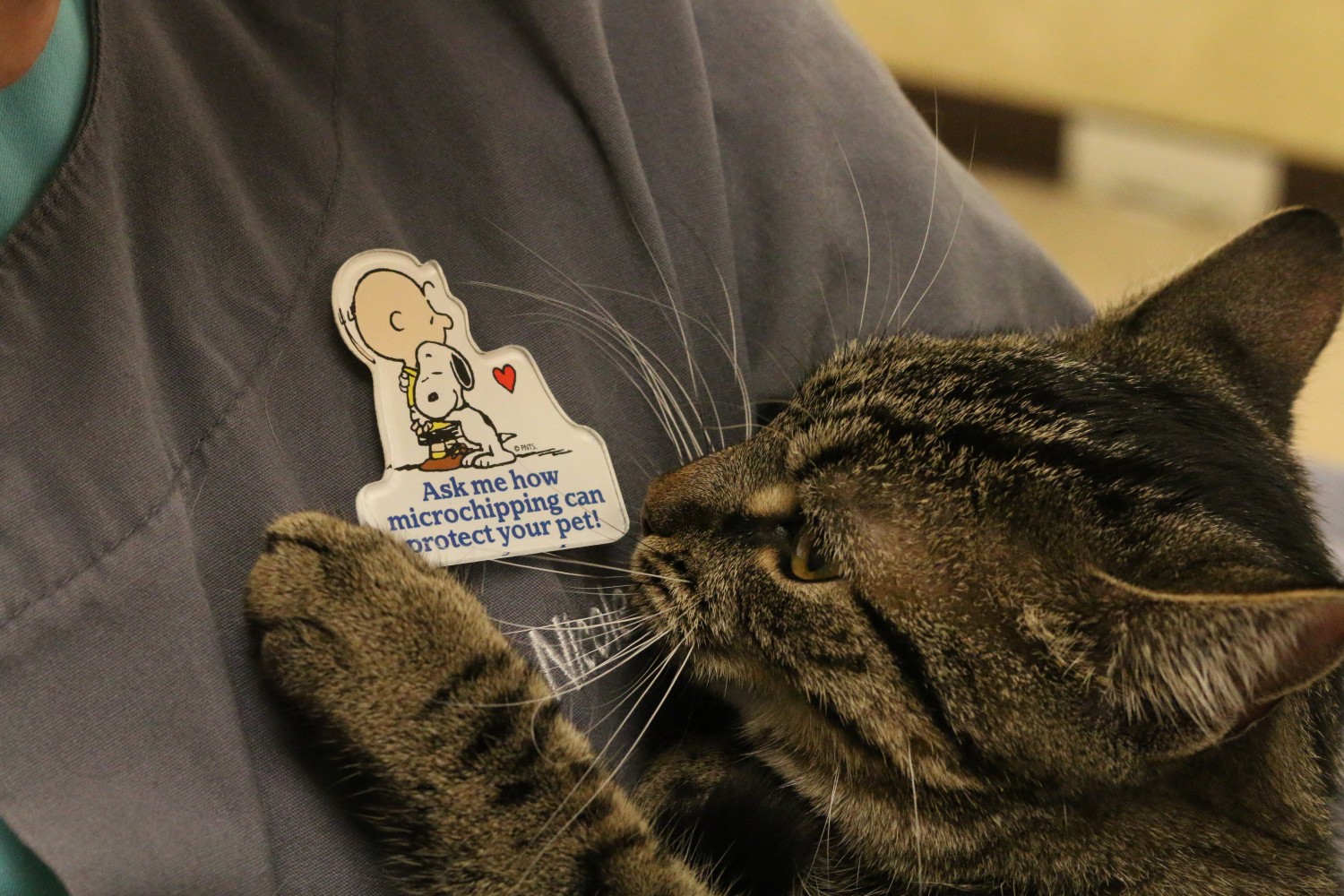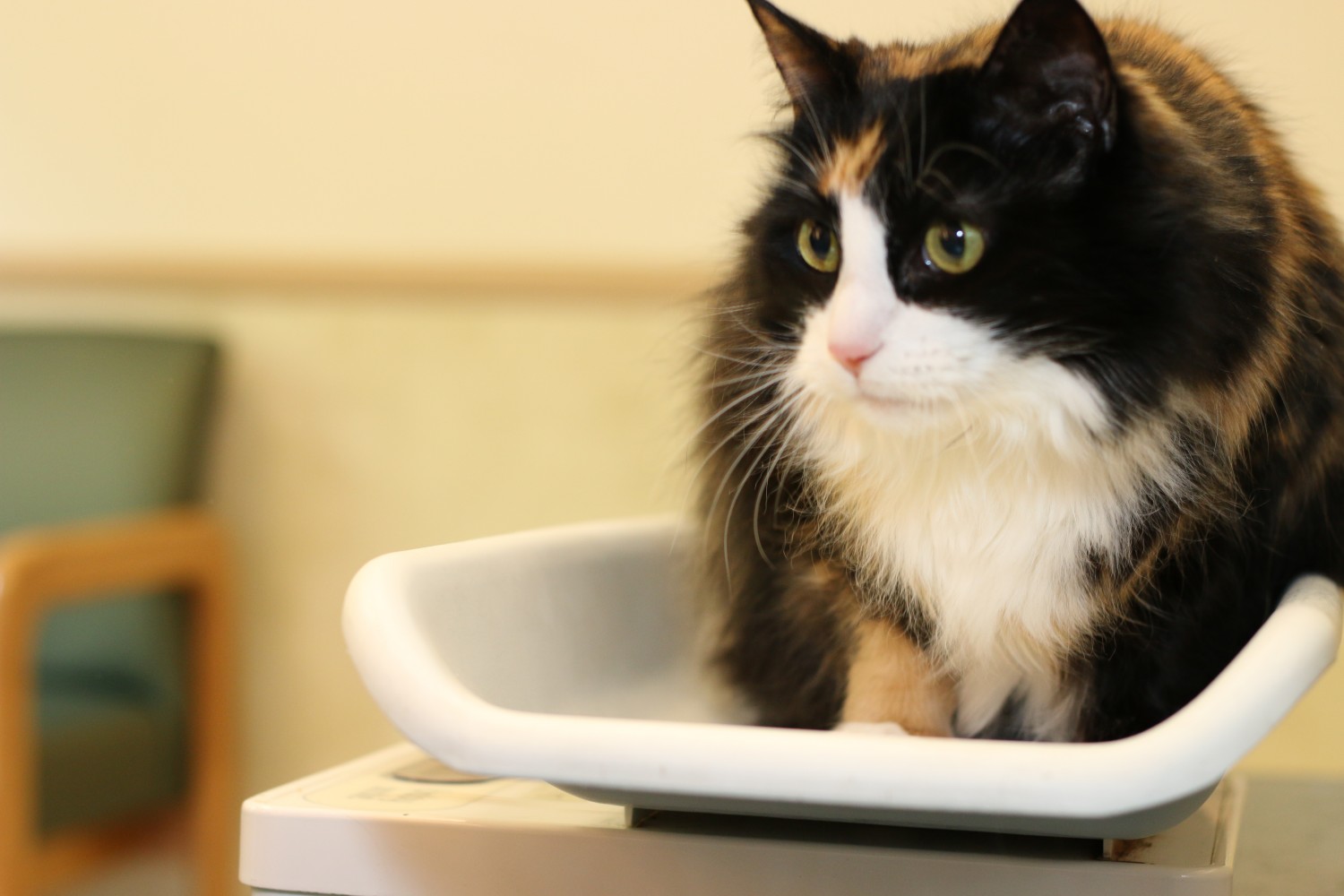|
Feline Wellness and Preventative Care

Wellness care is an important part of the medical care of your cat companion. Disease prevention and early detection is essential in allowing your cat to live a long and happy life. We offer comprehensive wellness care for every stage of your cat's life.
Our Wellness Program includes:
- Physical Examination
- Oral Health Assessment
- Intestinal Parasite Testing and Treatment
- Feline Leukemia / Immunodeficiency Testing
- Immunizations
- Heartworm Disease Prevention/Awareness
- Early Disease Detection
- Permanent Identification
- Pharmaceuticals/Supplements
- Flea and Tick Prevention for Outdoor Cats
- Diet and Optimal Weight Assessment
- Behavior
- Pain Management
Physical Examination
As our feline friends often do not show signs of disease until it is severe, we stress the importance of an annual examination or biannual exam in senior and high-risk patients. Thorough check-ups and preventive care can help alleviate serious health problems. At the physical examination visit the doctor will perform a complete physical with an oral exam, review your pet's medical history, recommend needed tests or services, and discuss care recommendations.
Oral Health Care
Regular dental care is important in maintaining your cat's teeth and protecting your cat's health. Dental disease is the most common disease affecting pets. By the age of three, the majority of cats are already suffering from gingivitis and periodontal disease. Approximately 25% of cats develop painful cavity-like resorptive lesions at or below the gumline. These resorptive lesions are extremely painful and can cause significant periodontal disease. Cats instinctively hide their pain, so you may not be aware of a serious condition. An oral exam is part of every complete physical exam, so if your pet is due for an exam, come in and we will check your pet's oral health at that time.
Our technicians will also show you how to take care of your pet's teeth at home to keep them their best between professional cleanings. We can discuss methods and products to help slow the accumulation of plaque and decrease the frequency of professional cleanings.
Keeping your cat's teeth and gums healthy is essential to giving your pet a healthier, happier, longer life. As an added bonus, clean teeth give your pet sweet breath!
Intestinal Parasite Control
Intestinal parasites including roundworms and tapeworms can make your cat ill and these parasites can infect people!
We provide appropriate testing to screen your cat for these parasites and prescribe medication to treat and prevent reinfection. Outdoor cats are at high risk for infection, so we treat all outdoor cats annually to eliminate infection. We are now using a topical dewormer that is very safe and effective - no more bitter pills!
Feline Leukemia and Immunodeficiency Testing
We routinely test all kittens and newly acquired cats for feline leukemia (Felv) and feline immunodeficiency virus (FIV). Outdoor cats are at a much higher risk for these diseases, so we recommend vaccination to prevent leukemia infection. Vaccination against FIV is not recommended at this time, due to limitations in differentiating vaccinates from positive infected individuals with the current available vaccine. We will screen cat who fight outdoor more frequently for FIV.
Immunizations
Immunizations are a vital tool in preventing serious and potentially fatal disease. We follow the vaccine guidelines developed by the American Association of Feline Practitioners (AAFP). All the vaccines we use are made for cats only, and are non adjuvanted. Of significant concern has been the increased incidence of a tumor, fibrosarcoma, associated with adjuvanted vaccines in cats. At Litchfield Veterinary Hospital we use Purevax and Continuum vaccines, which contain no adjuvant and have not been associated with fibrosarcoma.
Several leading veterinary immunologists believe that repeated vaccination of a pet that is adequately protected for a disease can aggravate immune mediated and allergic disease.
Our goal is to adequately protect your cat from fatal diseases without potentially aggravating other disease conditions. At LVH we routinely vaccinate healthy adult cats for feline panleukopenia and respiratory viruses every three years. Antibody titers are used to assess protection in cats with certain medical conditions.
Feline Heartworm Disease Prevention
Feline heart worm disease is much different from heart worm disease in dogs. It is often difficult to detect, almost impossible to safely treat, and the symptoms of the disease vary greatly. While some cats infected with heart worm disease may experience coughing or vomiting, others will show no symptoms at all. In fact, one of the most common signs is sudden death. The worms do not reproduce in cats, but 1 or 2 worms can cause life threatening disease and sudden death in cats. The incidence of infection in cats is 1/10 th that of dogs, and most commonly presents as an allergic bronchitis. Heartworm disease is 100% preventable with safe monthly medication. We now have a topical heartworm preventative for cats that also prevents fleas, intestinal parasites, and ear mites. This product is ideal for outdoor cats who are at greater risk for acquiring these infections.
Early Disease Detection
As pets age it is important to acquire a baseline assessment of their kidney, liver, and thyroid metabolic function. Early detection of disease allows us to treat or slow its progression. We strongly recommend screening bloodwork, urinalysis and or radiographs in senior patients on an annual basis.
Permanent Identification
We strongly recommend microchip identification of all pets. Microchipping is a simple permanent means of identifying your cat. If your cat is lost or stolen and brought to a shelter, pound or veterinary hospital, he can be positively  identified and safely returned to you. We implant microchips with a syringe and needle in the subcutaneous tissue over the shoulder blades. Many clients prefer to have this done during an anesthetic procedure since the rather large microchip needle can be painlessly inserted while the cat is asleep for surgery, but a microchip can be implanted easily in an awake patient. identified and safely returned to you. We implant microchips with a syringe and needle in the subcutaneous tissue over the shoulder blades. Many clients prefer to have this done during an anesthetic procedure since the rather large microchip needle can be painlessly inserted while the cat is asleep for surgery, but a microchip can be implanted easily in an awake patient.
Pharmaceuticals/Supplements
We maintain a complete inventory of pharmaceuticals, flea and tick control products, and prescription diets to meet the needs of your cat. We will help you chose the product most beneficial for your cat, based on their unique lifestyle.
For your convenience we now provide an online pharmacy, My Vet Direct, that carries more flea and tick preventative choices, medication, and prescription diets. All products from this store come directly from our distributor and are guaranteed by the manufacturers. You can access the site with this link Vets First Choice.
Individualized Flea and Tick Control Programs
Fleas not only irritate your pet, they also carry disease and can cause serious allergic skin disease and infection.
We develop programs for the specific needs of your pet and your own particular environmental situation. Our healthcare team will review with you the best ways to control fleas in your house, in your yard and on your pet. We will assist you in selecting the flea control and prevention products most suitable to your pet and lifestyle.
Dietary Counseling
We will provide guidance regarding your pet's nutritional needs for each life stage, including dietary requirements for growth, weight maintenance and performance.
Behavioral Counseling
We can provide advice regarding the correction of problems such as excessive scratching, inappropriate urination, house soiling and aggression.
Pain Management
At some point in their lives, pets may experience pain. Whether pain is associated with an acute injury, surgery or chronic disease such as arthritis, it can greatly affect the well-being and quality of life of our pets. Dogs and cats often hide symptoms of pain, making it difficult to recognize for most owners. At Litchfield Veterinary Hospital, your pet's comfort is our first priority. Annual or bi-annual wellness exams allow our veterinarians and healthcare team to assess your pet's well being. We'll help you learn to recognize subtle changes that may indicate pain. There are many options for treating pain in your pet from naturopathic supplements to pharmaceutical intervention, as well as physical therapy. Over the counter human medications can be toxic to your pet, therefore pain management should be under the direction of your veterinarian. Our team utilizes the Colorado Pain Scale.
Learn More:
Feline Pain Scale: http://www.vasg.org/pdfs/CSU_Acute_Pain_Scale_Kitten.pdf |

|
